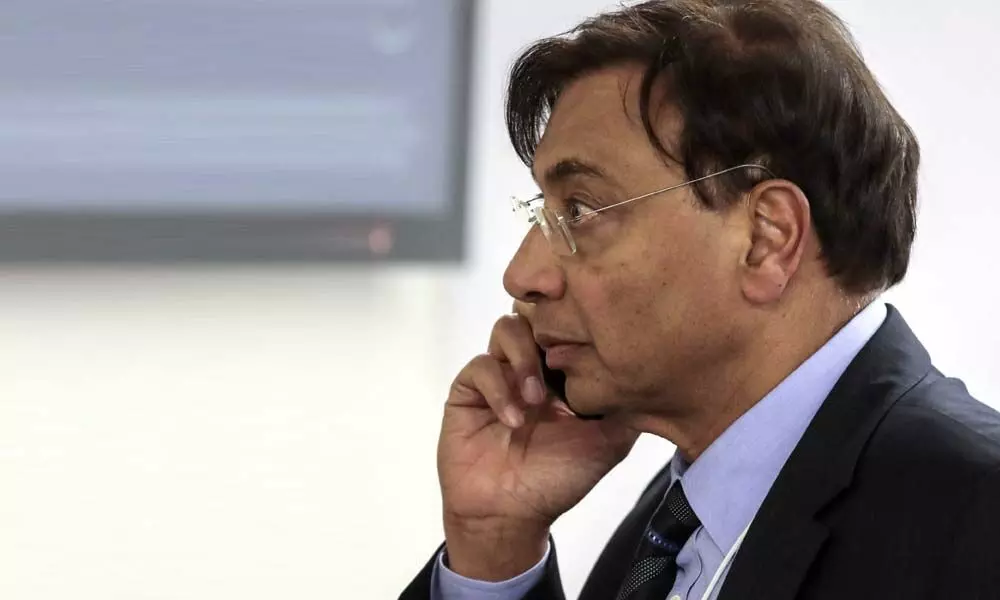ArcelorMittal exits pandemic with shift to gen next
Lakshmi Mittal, the billionaire steel magnate who owns 36% of the company, is stepping back from day-to-day operations
image for illustrative purpose

We have worked closely together since he joined the company in 1997, indeed in recent years we have effectively been managing the company together, the elder Mittal said in a statement
ARCELORMITTAL named Aditya Mittal its new chief executive officer, marking a generational shift as a leaner steelmaker emerges from the pandemic.
The 45-year-old served a two-decade apprenticeship under his father Lakshmi Mittal, who becomes executive chairman of the steelmaking giant he founded in 1976. During that period, the new CEO made his mark, spearheading the $34 billion takeover of Arcelor in the steel industry's biggest-ever deal. Now he faces an equally daunting challenge: maximizing investor returns while making polluting steel plants green. "What I like about Aditya is that he has retained the entrepreneurial drive of his father," said Christian Georges, senior analyst at Societe Generale SA. "He knows all the businesses inside out and the underlying profitability keys."
Lakshmi Mittal, the billionaire steel magnate who owns 36 per cent of the company, is stepping back from day-to-day operations as ArcelorMittal rewards investors with a revived dividend and series of share buybacks after years of focusing on debt reduction. Mittal, who was once the UK's richest man, built the company from a rolling mill in Indonesia in 1976, before transforming the industry with the takeover of his largest rival 30 years later.
"We have worked closely together since he joined the company in 1997, indeed in recent years we have effectively been managing the company together," the elder Mittal said in a statement. "We will continue to work very closely together and I remain as fascinated, engaged and committed to the company's long-term success as ever."
Aditya Mittal, who previously worked in Credit Suisse Group AG's investment bank, played a key role in driving the acquisition of Arcelor in 2006. His plan catapulted Mittal from being the owner of older plants, mainly in emerging markets, to the world's biggest and most advanced steelmaker. It also lumbered the company with debt that it's spent the past 15 years trying to escape from. Now the former chief financial officer faces the twin challenges of fighting off low-cost output from Turkey to China, while curbing the business's carbon emissions.
"I'm very much looking forward to this next chapter," the new CEO said on a conference call. "I'm focused on ensuring we continue to perform well and the biggest challenge of the day is how we decarbonise the steel industry."
For that task, ArcelorMittal has among the best engineers in the business, according to Georges of Societe Generale. "Ultimately, the key will be around government support and the cost pass-on to clients and consumers," he said. "So a challenge perhaps, but also a possible opportunity."
Demand Outlook
ArcelorMittal expects steel demand — a key barometer for global economic growth — to increase by 4.5 per cent to 5.5 per cent this year, after contracting in 2020. Steelmakers from India to Japan have flagged a recovery after the pandemic crushed consumption last year. The company will pay a dividend of 30 cents a share and also announced a new $570 million share buyback program. ArcelorMittal shares rose as much as 4.1 per cent, before trading 0.6 per cent lower as of 2:12 p.m. in Amsterdam. The implied yield is close to 6 per cent, putting the company on par with diversified miners Rio Tinto and BHP, the sector leaders in shareholder returns, says Grant Sporre, BI Metals, Mining & Commodities The steelmaker has focused on consolidation, selling its North American operations to Cleveland-Cliffs Inc. and shuttering an unprofitable furnace in Poland. It also sold most of its stake in the beleaguered Ilva mill to the Italian government.
ArcelorMittal reported fourth-quarter earnings before interest, taxes, depreciation and amortization of $1.73 billion. (Bloomberg)

